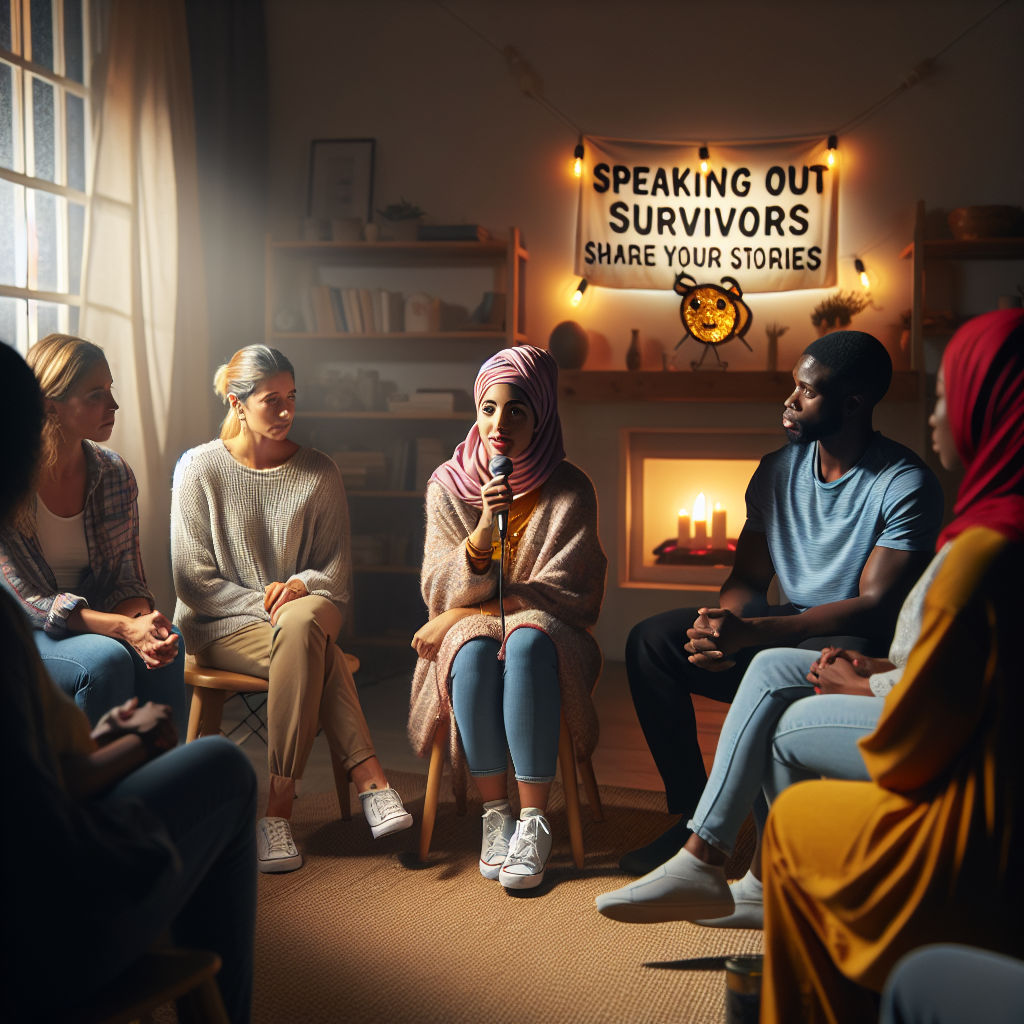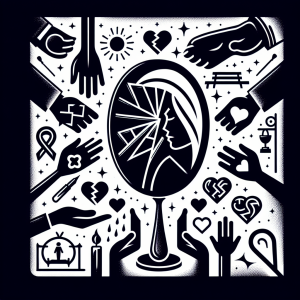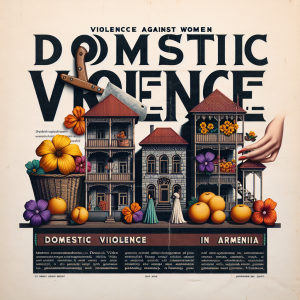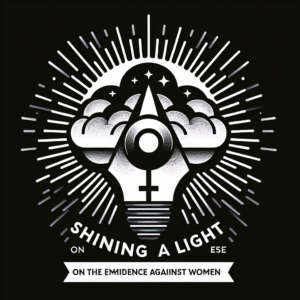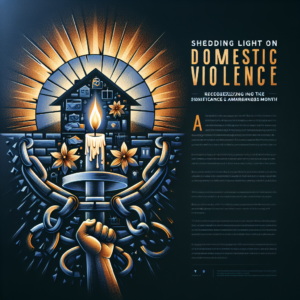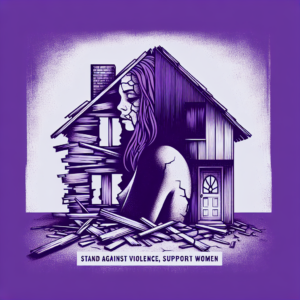### Opening the Doors to Hidden Stories
In the shadows of societal norms and behind the closed doors of seemingly perfect lives, many individuals endure the grim reality of domestic abuse. It’s a menace that thrives in secrecy, often leaving survivors feeling isolated and helpless. However, through the courageous acts of speaking out, survivors share their stories, offering both solace and strength to others in similar situations. This article aims to shine a light on these powerful narratives, delving into the personal experiences of those who have lived through domestic abuse and emerged on the other side.
### The Unseen Battle
Domestic abuse encompasses more than just physical violence; it’s a complex interplay of psychological, emotional, sexual, and financial abuse. It’s an exertion of control that leaves scars not always visible to the naked eye. Jane, a survivor, recalls, “It started with small comments about what I wore or how I spoke. Gradually, it escalated into full-blown control over every aspect of my life. I felt trapped, believing I had no way out.” Jane’s story mirrors the experiences of countless others, illuminating the insidious nature of domestic abuse that often begins as a whisper before becoming a roar.
### Break the Silence
Breaking the silence is arguably the most formidable step a survivor takes. “The fear of not being believed or the repercussions from my abuser kept me silent for years,” shares Michael, another survivor. The act of speaking out is more than just sharing a story; it’s reclaiming the narrative of one’s life. Organizations and platforms that allow these stories to be told play a crucial role in dismantling the stigma and isolation surrounding domestic abuse.
### A Community of Support
When survivors choose to share their stories, they not only begin their healing journey but also extend a lifeline to others. Sarah, who started a support group for survivors, emphasizes, “Hearing someone else articulate what you’ve been through is incredibly validating. It makes you feel less alone and more understood.” This sense of community is vital in fostering an environment where healing can begin. It’s about rebuilding the feeling of empowerment that abuse often strips away.
### Transformative Power of Storytelling
The act of sharing and listening to personal stories of domestic abuse holds a transformative power. It challenges the narrative that survivors are merely victims, showcasing them as resilient individuals. These stories also serve as a beacon of hope for those still entangled in abusive situations. They embody the message that not only is escape possible, but there is also a life filled with potential and peace on the other side of abuse.
### Moving Forward
For many survivors, sharing their story is only the first step in a lifelong journey of recovery. The scars of abuse may fade, but the memories and psychological impacts linger. Resources such as therapy, support groups, and advocacy work become integral pieces of the healing process. Alex, a survivor turned advocate, says, “Helping others through their journey has been a crucial part of my healing. It’s about turning my painful past into a hopeful future for someone else.”
### The Role of Society
Society plays a pivotal role in combating domestic abuse. By fostering an environment where speaking out is encouraged and supported, we can begin to dismantle the cycles of abuse. Education, policy changes, and resource allocation are necessary to address the root causes of domestic abuse and provide a safety net for those affected.
### The Path to Healing
Healing from domestic abuse is a deeply personal and non-linear process. It’s about reclaiming one’s sense of self and rebuilding a life marked by autonomy and joy. “Finding joy in the small things, relearning to trust myself, and building a support network were crucial steps on my path to healing,” reflects Emma, a survivor. Every survivor’s journey is unique, but the common thread is the resilient spirit that propels them forward.
### Conclusion
The stories shared by survivors of domestic abuse are a testament to the human spirit’s resilience. By speaking out, they not only embark on their healing journey but also pave the way for others to follow. As a society, it’s our responsibility to listen, support, and act to ensure that the cycle of abuse is broken. By opening our ears and hearts to these stories, we move closer to a world free from the shadows of domestic abuse.
### FAQs
**Q: What is domestic abuse?**
A: Domestic abuse, also known as domestic violence, is a pattern of behavior in relationships used to gain or maintain power and control over an intimate partner. It can include physical, emotional, psychological, sexual, and financial abuse.
**Q: How can I help someone I suspect is experiencing domestic abuse?**
A: Listen without judgment, affirm their experiences, offer support, and provide information on resources such as local domestic violence shelters, hotlines, and counseling services. Remember, the decision to seek help must come from them; your role is to support them in whatever decision they make.
**Q: Are men victims of domestic abuse too?**
A: Yes, men can be and are victims of domestic abuse. Domestic abuse knows no gender, age, or socioeconomic boundaries. Support and resources are available for men who are experiencing abuse.
**Q: How can I share my story?**
A: Many organizations and platforms allow survivors to share their stories anonymously or publicly. Starting a personal blog, participating in survivor support groups, or reaching out to non-profits dedicated to domestic abuse can be ways to share your story when you’re ready.
**Q: What are the signs of domestic abuse?**
A: Signs can include but are not limited to: controlling behavior, isolation from friends and family, physical harm, threats, emotional manipulation, financial control, and demeaning behavior. Each situation is unique, and recognizing the pattern of abuse is crucial.
Remember, you are not alone, and help is available. Sharing your story, seeking support, and accessing resources can be significant steps toward healing and reclaiming your life.



